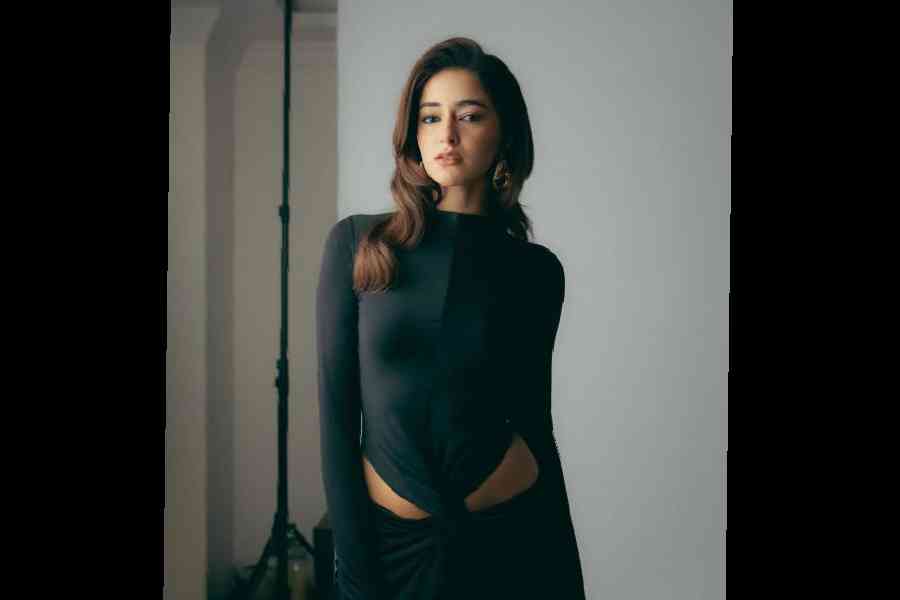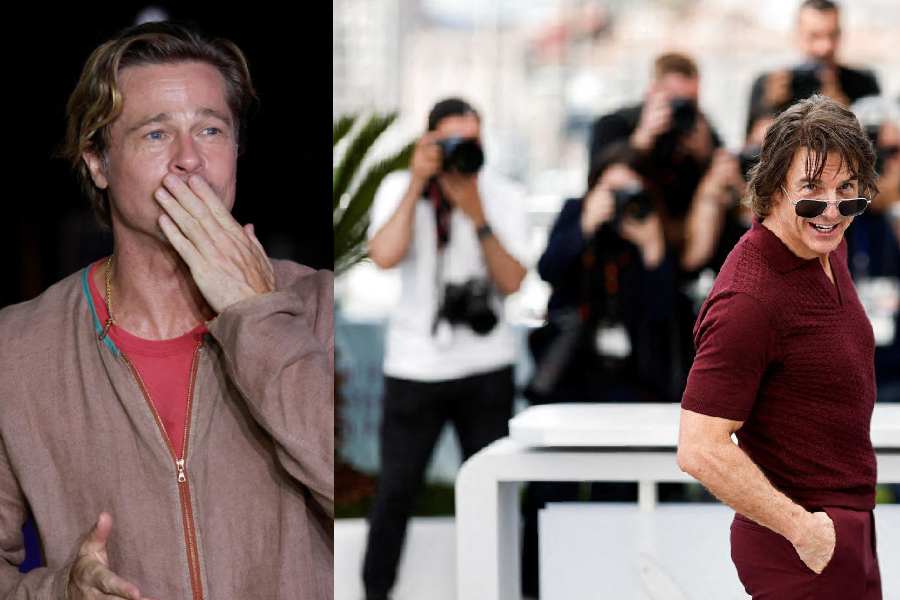Ananya Panday is the silent tour de force in Kesari Chapter 2, the Akshay Kumar starrer based on the aftermath of the Jallianwala Bagh massacre, which continues to have a good run in cinemas. As the steadfast Dilreet Gill, Ananya gives yet another glimpse of her rising range as an actor. The actress is also adding to her overflowing brand repertoire, and is now the first-ever Indian face of global luxury brand Chanel. t2 caught up with a jubilant Ananya for a chat.
Congratulations for Kesari Chapter 2. Not only has the film done well at the box office, your performance has also been singled out for praise. How does it feel being lauded for a part which you hadn’t played before and in such an important film?
We have been overwhelmed with the love the film has received so far. We spent a lot of time, energy and love in this film. It was in the making for four-plus years. All of us, especially our director Karan (Singh Tyagi), has put his heart and soul into the film.
All of us, the actors especially, are very proud to be part of a film like this, which tells the story of a chapter from our history that may have been forgotten or one that most people are not fully informed about.
A lot of people have got emotional while watching the film. They came out and said that through Kesari Chapter 2, they learnt so much about our history. Even though it has an adult certification, everyone thinks it is a must-watch for even the younger generation, which we hope will happen when it comes to television later. We have become emotional hearing things like how people have decided to make changes in their own lives after watching this film.
That must make it so special...
Yes, it definitely does. In fact, it changed something within me when I heard the script for the first time. Even otherwise, when I hear scripts, I react very instinctively... I react like an audience. It is almost like I am watching the script playing out in the theatre.
When I heard the narration of this film, my mouth fell open and remained like that throughout. We all, of course, have studied about the Jallianwala Bagh massacre in school, it is a part of the syllabus. But like most others, I didn’t know the details so thoroughly and I told myself: ‘I have to be a part of this film!’ For me, it didn’t matter how big or small the role was. I just knew that I wanted to be a part of storytelling that comes from an honest and emotional space.
What aspect of the story of the Jallianwala Bagh massacre and its aftermath surprised you the most?
One of them was the extent to which the British went to cover up what exactly happened — whether it was documents going missing, things getting changed around, the blatant lies told, dismissing things like they never happened.... The extent to which they went to cover up something like this and the way they influenced the media of the time and changed the narrative was very scary. I think the thing that surprised me the most was what the British did to influence the media. But when things were not going in their favour, they were like: ‘We don’t want the media to be present in court’. That is because they were scared that the truth would finally come out or that the jury was getting influenced by the media being there or by what they were reading in the papers. That, to me, was very shocking.
What was your reading of your character Dilreet Gill and what did you bring to her apart from what was in the script?
I spent a lot of time with Karan, our director. He was a lawyer before he became a director. The mannerisms needed in court, what exactly is said, the physicality... a lot of that came from him. We did a lot of workshops with Pooja and Sheena, who are amazing actresses. I worked with them to not only understand the posture and attitude of a lawyer but also that of a woman living in 1920s India.
Being a 26-year-old living in 2025, I have a lot of expressions and hand actions and my tone of speaking is very different. I had to change quite a bit of that to be able to play Dilreet. I had to restrict my facial expressions, actions and gestures while speaking in order to get into her skin.
There weren’t too many female lawyers in India at that time. When Dilreet first enters court, there is an intriguing shot of only men walking down the corridors. That is such a powerful visual of who she is. I had to build enough self-confidence to play a woman in a male-dominated world.
What I really connected with Dilreet as a character was that she wasn’t a screaming, shouting, over-the-top kind of person. She has a very quiet strength and resolve. The fierceness was bubbling inside her and you could see that in her eyes. It wasn’t something that she had to scream out to draw attention to. She didn’t rely on theatrics.
It wasn’t something that I had explored in any of my roles before. Hence, getting into the skin of the character involved spending a lot of time with the director. Most of it, as you said, was in the script and it was all about building a strong context in terms of where she comes from, what her life has been like and why she is so passionate about what she is fighting for.
Unlike the other principal characters in the film, Dilreet is fictional. Did that work to your advantage because you could work on a clean slate or was that a disadvantage since you had no reference on how to play her?
It wasn’t really an impediment because though Dilreet is fictional, there were other female lawyers who came in a few years after the film. So there was definitely some amount of reference. And Karan was always around to fill in the gaps whenever I had a doubt or query.
Your father, Chunky Panday, has starred in many films with Akshay Kumar. What was it like sharing screen space with him for the first time?
As a disciplinarian, there is so much to learn from him. He is always on time on set and he is very involved in everything. Every day, before a scene, he would call me, the director and the writers into his van. We would all sit and read together and he had a lot of valuable inputs to give, over and above all the prep that we had done beforehand.
Even after so many years and so many films, he still has a childlikeexcitement when it comes to every film. He had a huge contribution to make when it came to the dialogues... he is great at improvising.
You are the first Indian to be the face of Chanel. What does that mean for Ananya Panday as a brand? What are your first memories of using the brand?
I got very emotional when the announcement came out and the line said: ‘The first ambassador from India and for India’. I feel very proud to represent my country on such a global stage. They recognise what a big (luxury) market we have.
Chanel is my mom’s (Bhavana Panday) favourite brand. While we were growing up, I remember she had this black Chanel wallet bag. When I got older, she told me: ‘Okay, now you can carry this but you have to be very, very careful with it. You cannot spoil it!’
My sister (Rysa) and I would keep fighting over that bag. Now she studies in New York and she has taken it with her, and I can’t even steal it back!
You don’t need to... you are the face of the brand now!
(Laughs) I still have to pinch myself sometimes that this is really true! We have a huge connection with the brand. When I was joining the movies, I asked my mom what she wanted as a gift when I became an actress. She was like: ‘The only thing I want is a Chanel bag’. After I became an actress, it took me a few paychecks to finally get her that Chanel bag.
You just turned six in the business, with Student of the Year 2 releasing on May 10, 2019. It has been a good run, especially in the last few projects. What do you see yourself achieving as an actress in the next few years?
In the last few years, I have evolved as a person. My taste and the kind of movies I watch is also very different from what it used to be. I think that is a direct reflection of the kind of movies that I am doing now.
I have always been instinctual. Every time I read a script or hear a narration, I operate from what my first instinct is. If I have second-guessed something, the decision has invariably not gone well. So I have learnt to rely more on my instincts and that is what I want to do going forward too. I will only do something if I fully feel it in my gut, or I know that it will open up an opportunity for me to learn and do something novel.
My career and the choices that I have made have been a direct reflection of Ananya growing up as a girl in India, what is happening in her life, the things she is seeing and the experiences that she is going through.
I feel that only when you do things is when people see that you are able to do those things. Unless someone sees you in a different role or unless you audition for something and show them that: ‘Oh I can also do this’, you are not going to get that opportunity. Vikram sir (director Vikramaditya Motwane) saw Gehraiyaan and said: ‘Okay, I want to meet Ananya’, and that is how CTRL happened. I had to audition for Arjun (Varain Singh, director) for him to see that I could do the kind of role I did in Kho Gaye Hum Kahan. After Kesari Chapter 2, I am hoping that people are able to imagine me doing different kinds of roles.










